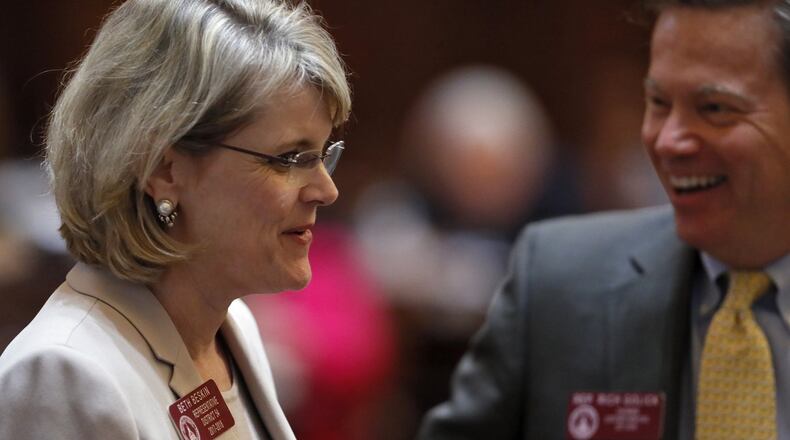Atlanta residents will have the opportunity to vote on a referendum that could drastically reduce the amount of property taxes homeowners pay — but residents statewide will also have a say.
HB 820 calls for a statewide referendum to determine whether Atlanta residents can cap their city property tax increases. City homeowners would not be taxed on value increases of more than 2.6 percent each year.
The bill, sponsored by Rep. Beth Beskin, R-Atlanta, would also change the way Atlanta advertises its tax rates. Now, the city is required to advertise tax increases if it doesn’t roll back its tax rates to a revenue-neutral number. In the future, it would no longer be required to do so.
“Most people would rather have a few hundred dollars in their pocket than an ad in the newspaper that doesn’t change anyone’s behavior anyway,” Beskin said.
The legislation is one of a number in Fulton County that seeks to cap property taxes for homeowners. Last year, a huge jump in property values shocked residents and some worried that they could be taxed out of their homes. This bill, and others, await the governor's signature.
Beskin said the Atlanta legislation would go to a statewide vote because the city’s delegation was not on board with the proposal — “They have a different taxation philosophy,” she said of the largely Democratic delegation, which objected to freezing property values at levels that are below fair market value.
If approved, homeowners could choose the lowest-value year of 2016, 2017 or 2018 as their base year. That base year would be adjusted upward for inflation. The bill would go into effect in 2019.
About the Author
Keep Reading
The Latest
Featured





